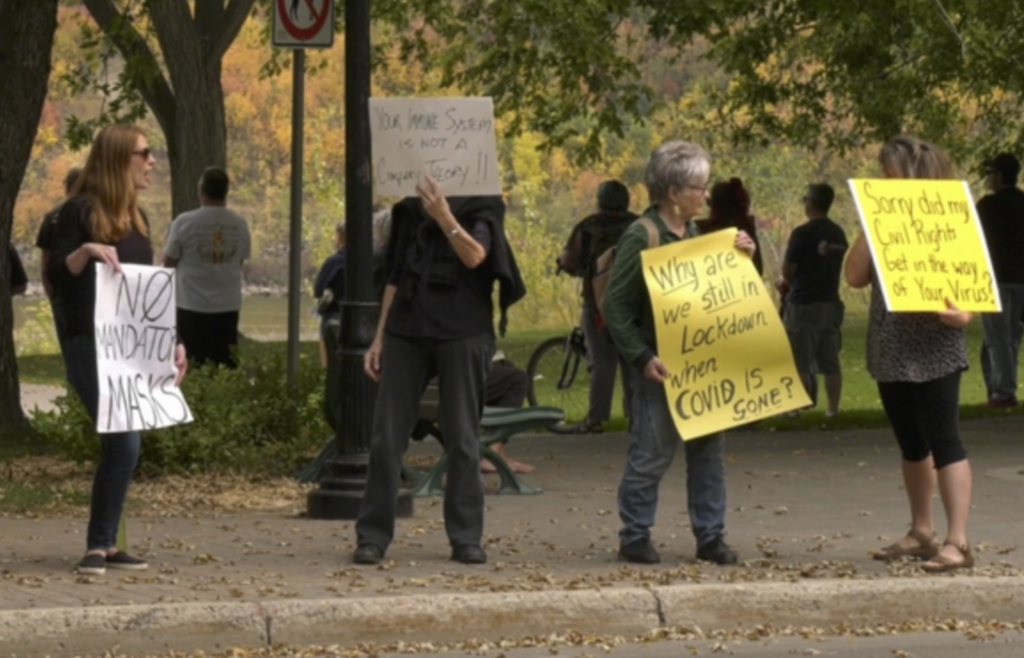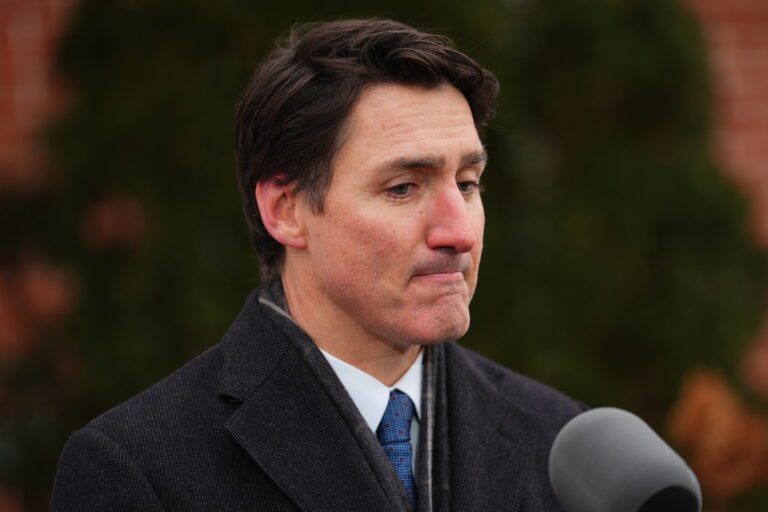REGINA, SASKATCHEWAN: The Justice Centre for Constitutional Freedoms (Justice Centre) announces that anti-lockdown protestors convicted for violating Saskatchewan’s 10- and 30-person outdoor gathering limits in 2020 and 2021 are appealing their convictions at the Court of King’s Bench. Further, on Friday, March 3, 2023, written submissions challenging the constitutionality of Saskatchewan’s outdoor gathering limits were filed at the Court of Appeal.
During 2020 and 2021, Saskatchewan imposed strict numerical limits on outdoor gatherings that applied to outdoor protests. At some periods, Saskatchewan imposed 10-person limits on outdoor gatherings, while simultaneously permitting hundreds of persons to gather indoors for shopping, dozens for dining, and at least 30 in many other indoor settings, where Saskatchewan’s Chief Medical Health Officer, Dr. Shahab, noted there existed a greater risk of virus transmission.
Charges for violating the 10- and 30-person limits on outdoor gatherings were not pursued against hundreds who had protested for BLM in June of 2020, including the Regina police chief and other officers who themselves attended protests while being supported by Premier Scott Moe and Saskatchewan’s Chief Public Health officer, Dr. Saqib Shahab. However, aggressive law enforcement and prosecution has only been pursued against anti-lockdown protestors in late 2020 and 2021, despite protests for other causes, including the Palestinian conflict and LGBTQ causes, occurring during the same time period.
The Justice Centre has provided counsel for dozens of people charged for protesting, with more than a dozen trials scheduled, involving a significant amount of Court time in Saskatoon and Regina, as well as hearings in Outlook and Moose Jaw. Unlike other jurisdictions, the Crown in Saskatchewan has dropped a minimal number of Covid charges. While some protestors have been acquitted, a number of protestors have been convicted for participating in outdoor protests with more than 10- or 30-persons.
In the appeals from their convictions to the Court of King’s Bench, the protestors argue limits on outdoor protests were imposed without proper legal authority. The limits on outdoor protests stem from a series of public health orders made by Dr. Shahab, who appears to have relied on his authority from the Public Health Act and the Disease Control Regulations, which granted such authority to the Minister of Health and not anyone else. Dr. Shahab’s orders further rely on a delegation of authority from the Minister to Dr. Shahab, pursuant to the Legislation Act. The Appellants argue that the delegation of authority from the Minister to Dr. Shahab was not permissible.
“In the context of the provincial court convictions on some protestors, the Court of King’s Bench will be asked to determine whether the delegation of authority to Dr. Saqib Shahab was lawful,” states lawyer Andre Memauri involved in the appeal. “Lawful delegation of authority is an important principle to be examined by our Courts to protect the democratic function of government and to prevent the erosion of representative government.”
The legal challenge to the constitutionality of Saskatchewan’s outdoor gathering limits altogether, continues to proceed at the Court of Appeal with the appellants filing their written submissions on Friday, March 3, 2023. The appellants in that case are seeking the Court of Appeal to overturn an earlier decision in 2022 that found that the restrictions on outdoor gatherings breached Charter rights but that those breaches were justified, in part because people could still express themselves online.
“This is a case primarily about the limitation of persons from assembling together as protected by the Charter and the appellants argue that their ability to express themselves on the Internet does not mitigate a breach of such right,” states Andre Memauri. “While Covid has presented significant considerations as to the health of residents, it is also necessary to consider the health of democracy and the Appellants in this challenge, will have an opportunity to present their case to the highest Court in Saskatchewan for consideration,” concludes Mr. Memauri.








